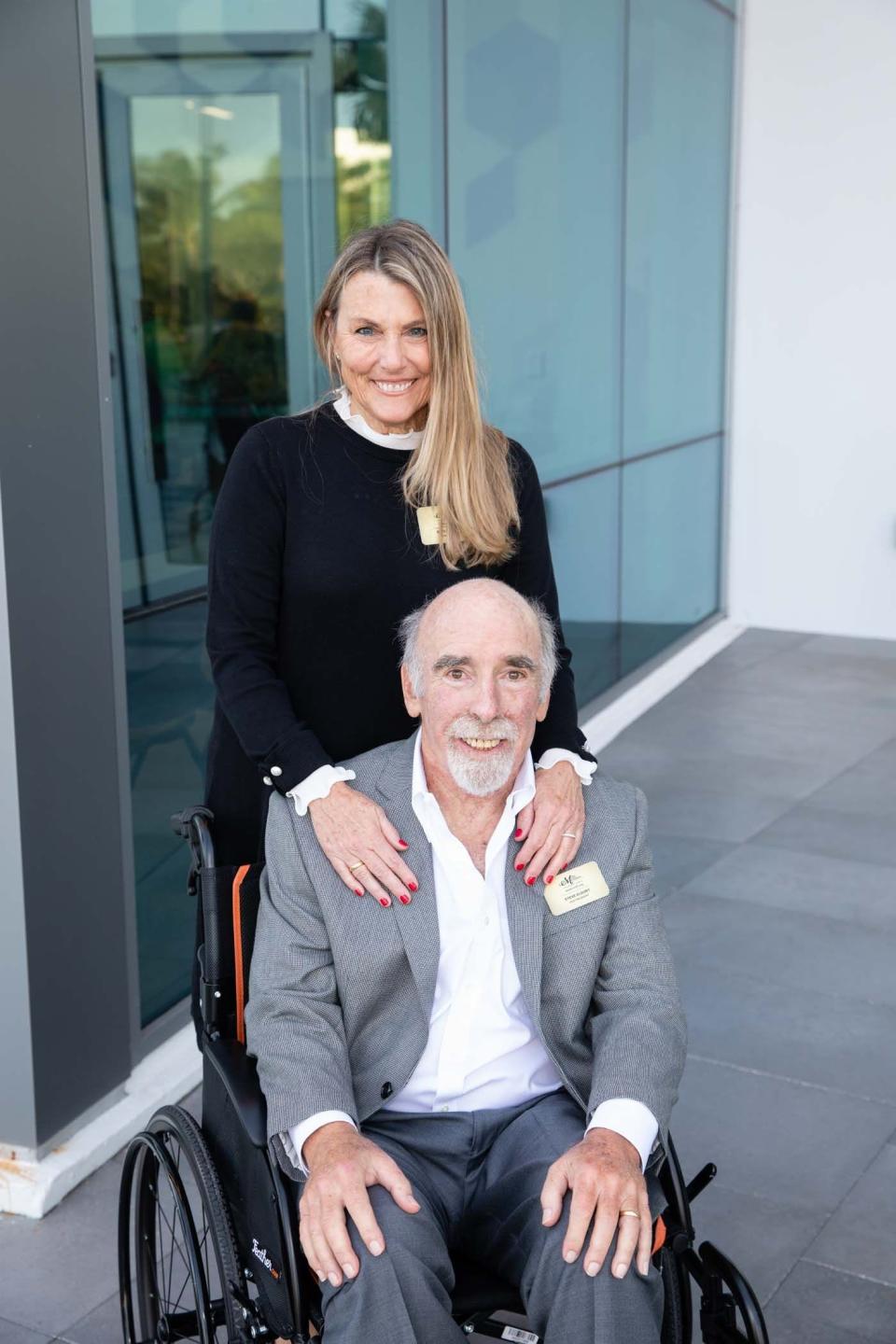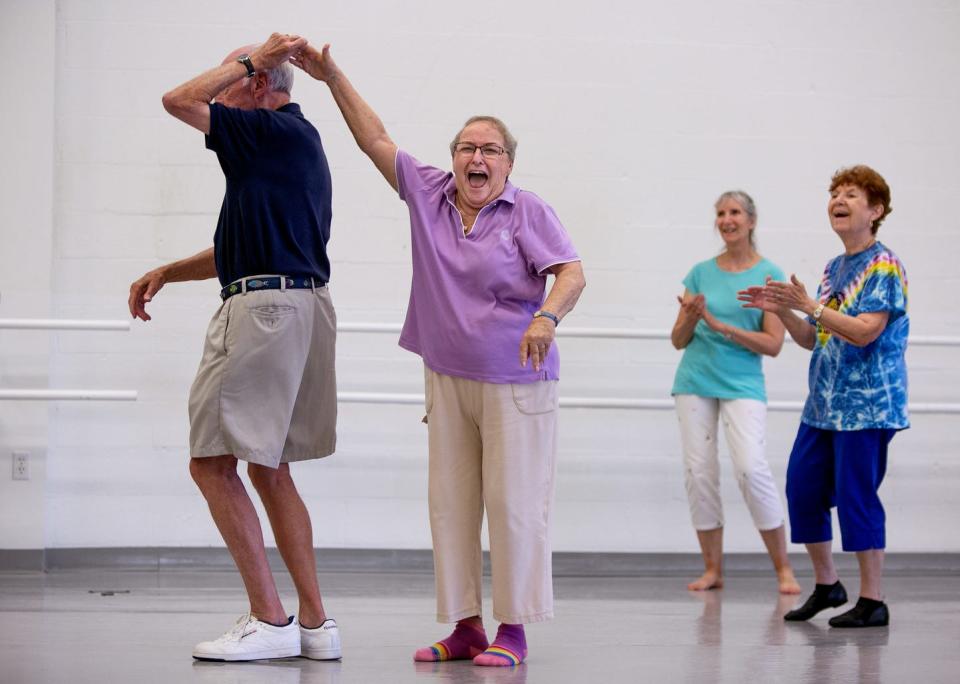Learn how to improve your brain and body through art therapy at West Palm event
Be it music or paintings or dance — or any form of art — there’s now myriad research to show that when one’s brain is exposed to this kind of stimulation, it reacts in a uniquely positive way.
And on Saturday, March 23, in West Palm Beach, you’ll have the chance to learn just what these findings can mean for you and your loved ones at Rhythms for the Brain: A NeuroArts Symposium, which is being presented thanks to a unique partnership between the Kravis Center for the Performing Arts and the Mind, Music and Movement Foundation for Neurological Disorders.
There will be around a dozen expert speakers on hand, all sharing what they’ve learned in recent years about how important it is that we all be exposed to art in some form or fashion.
The event, which will be held at the Kravis Center and is being sponsored by Cleveland Clinic, is one that both organizations are excited to present to the community.
That’s because the art-brain connection has the potential to transform lives.
“According to the American Art Therapy Association, individuals who engage in artistic experiences every few months enjoy a 31% lower risk of premature death compared to those who don't,” said Diane Quinn, Kravis Center CEO. "As someone who has engaged in a lifetime of the arts, these statistics reinforce things we have always sensed, but now have proven research to back them up. Our esteemed speakers, true luminaries in their respective fields, will not only share their expertise but also empower participants to dive deeper themselves.”

Echoing Quinn’s sentiments was Beth Elgort, the founder of the locally based Mind, Music and Movement Foundation for Neurological Disorders, who noted “this is an amazing opportunity for the community to learn about the impact of the arts in medicine, research, and overall well-being.”
‘Your Brain on Art’

Among the notable speakers — and the event’s official guest of honor — will be Susan Magsamen, the founder and executive director of the International Arts + Lab and author of The New York Times best-seller “Your Brain on Art.”
During a recent TED Talks podcast, Magsamen explained that our responses to art are naturally wired in our brains.
We all have innumerable neurons and the way we make "synaptic connections and strong neural pathways are through our sensory systems” she said.
Sensory and experiential synaptic connections are the strongest ones in our brain — and have the potential to benefit us in biological ways that we never before realized.
“We're starting to see those neural pathways are the things that connect all the different parts of the brain,” she said. “When you're thinking about structure and function and neural pathways are being built, you're also activating other physiological systems like the circulatory system, the respiratory system, and the endocrine and muscular systems.”
Thus, Magsamen noted that “art experiences have a neurobiological physiological impact, and it's simultaneous.”
She compared the art-related stimuli in one’s brain chemistry to “certain drugs that might activate a particular neurotransmitter [and that] different arts experiences might be igniting the reward system ... things like dopamine or serotonin or oxytocin.”
And just as importantly, she said, the research shows it also may be lowering stress hormone cortisol.
Magsamen's message has been echoed in numerous programs and initiatives throughout the U.S. — including the National Institutes of Health-funded BRAIN Initiative, which is studying how individual circuits connect and respond.
Last year, PBS reported that this “growing movement” has been seen everywhere from “neuroscientists at Johns Hopkins studying music's impact on dementia patients, [to] a hospital at the University of Florida incorporating arts into its care, [to] individuals who've suffered traumatic brain injuries, like former Congresswoman Gabby Giffords, playing the French horn to help rewire her brain and rebuild her ability to speak.”
Experts galore

Among the other expert speakers at Saturday’s symposium will be:
Brian Harris, founder and CEO of MEDRhythms. He plans to share his expertise with a neurotherapeutics demonstration combined with audience participation.
David Leventhal, program director and founding teacher of Dance for PD. Leventhal will share the power of movement by guiding participants through a dance demonstration.
Patricia Izbicki, a neuroscientist and medical science liaison at Octave and Dr. Nicole Baganz, Ph.D. and director of community engagement and programming at the FAU Brain Institute. They discuss their neuroscience research and some of the more notable findings that they and their colleagues have made.
Dr. Jason Hao, founder of Hao Acupuncture Clinics. Hao will explore the modern applications of acupuncture and discuss how this ancient “medical art” affects both the brain and body.
There will also be a panel discussion and audience Q&A helmed by local experts:
Dr. Jennifer R. Buczyner, Comprehensive Neurology of the Palm Beaches.
Dr. Arif Dalvi, Palm Beach Neuroscience Institute.
Dr. Randy Blakely, executive director at FAU Stiles-Nicholson Brain Institute.
Dr. Amre Nouh, regional chair of neurology at Cleveland Clinic Florida
Dr. Catherine Drourr, Concierge Medicine of Jupiter.
Rhythms for the Brain: A NeuroArts Symposium in West Palm Beach
When: 11 a.m. Saturday, March 23
Where: Kravis Center for the Performing Arts, 701 Okeechobee Blvd., West Palm Beach.
Admission: $65 to attend the symposium and an additional $100 to attend a post-event VIP cocktail reception; $25 for Zoom attendance
Contact: To register for the symposium, visit kravis.org/events. To purchase tickets for the VIP reception, visit www.m3f.org/event-details.
This article originally appeared on Palm Beach Post: West Palm event will show how art, dance, music affects your brain

